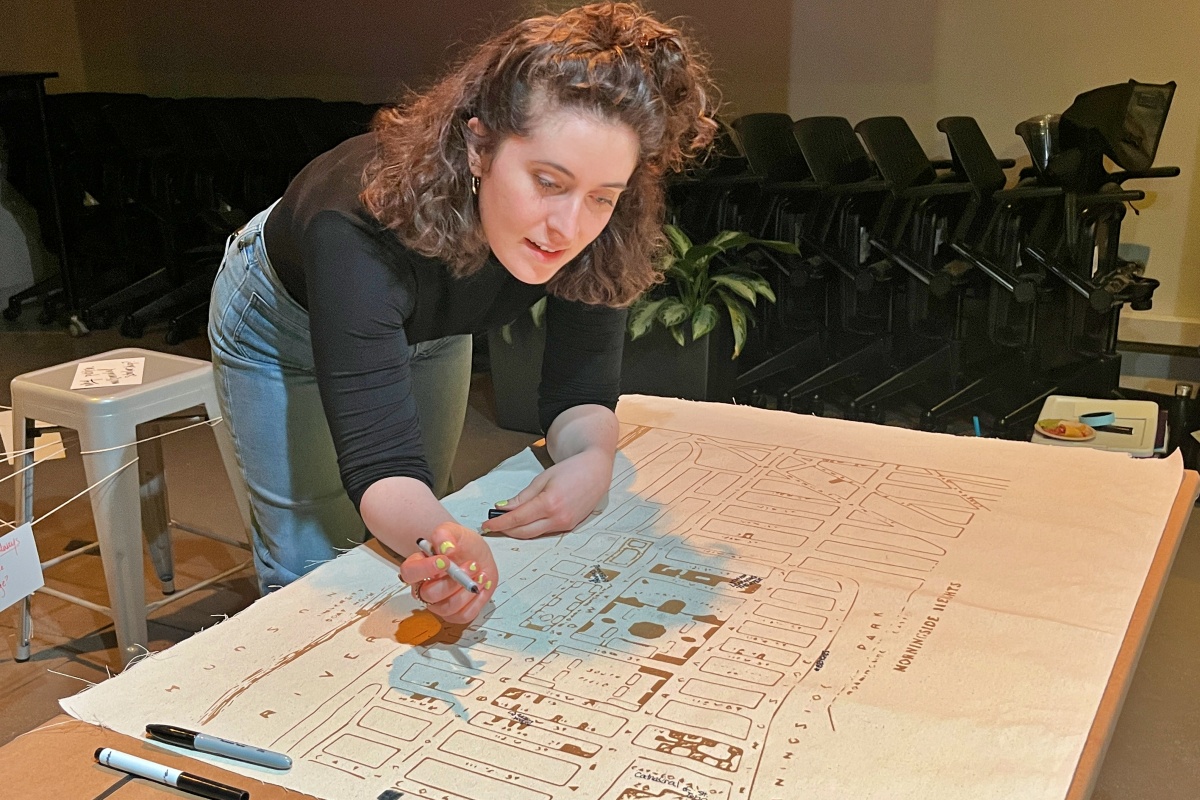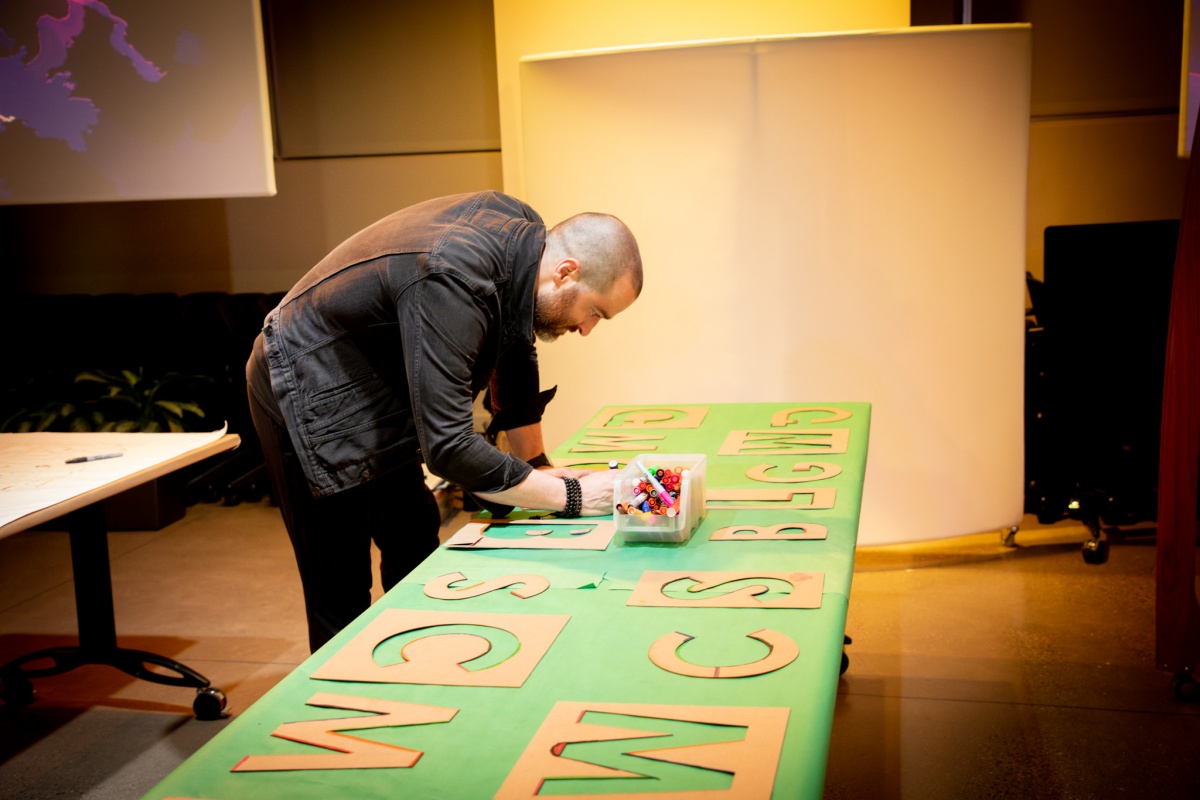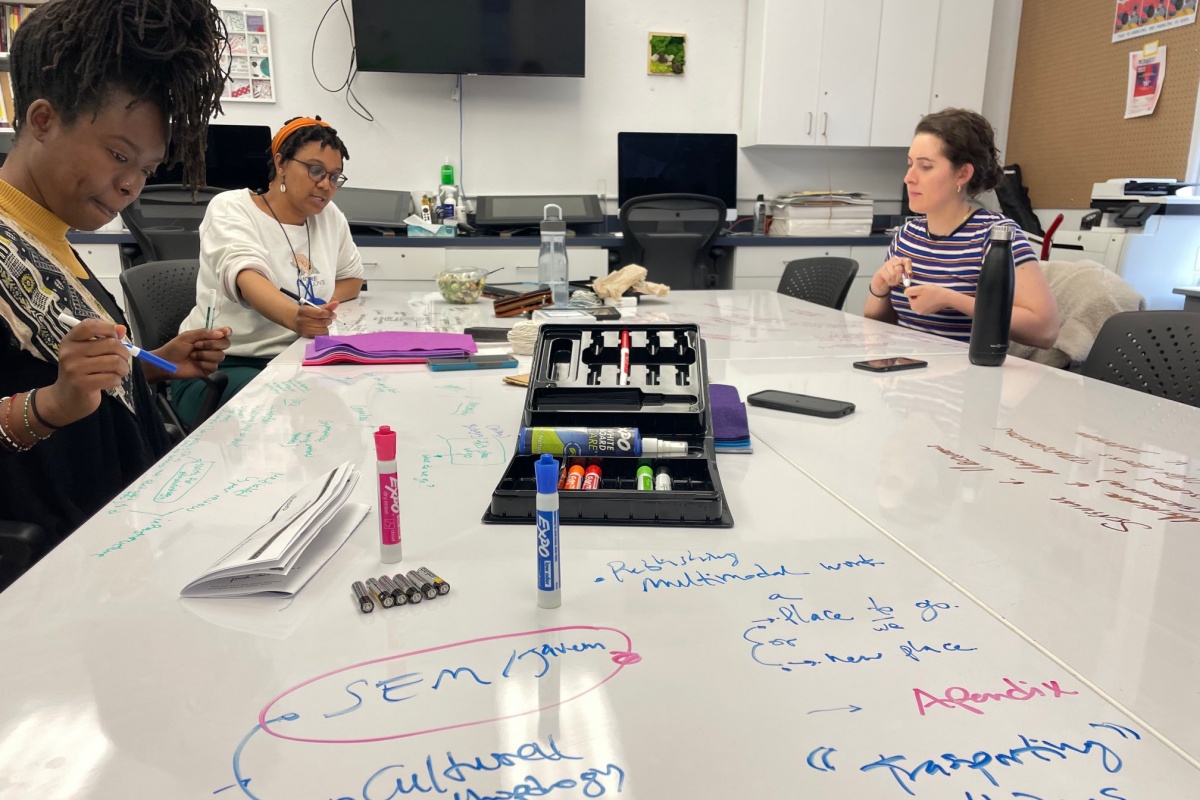If you were perhaps unaware of how deeply media and learning are intertwined, a quick stroll around the 2023 Mediafest would change that. Eight student-led booths peppered the College’s Smith Learning Theater in late April for the cornerstone annual symposium hosted by the Media and Social Change Lab (MASCLab).
“It’s been a great year,” says Lalitha Vasudevan, director of the lab and Vice Dean of Digital Innovation. “The students took the intersection of media and social change in exciting new directions in their research, in their inquiries and explorations with multimodal methods, and in their media production.”
Here’s what you missed from this year’s showcase of exciting projects at the intersection of media and social justice.
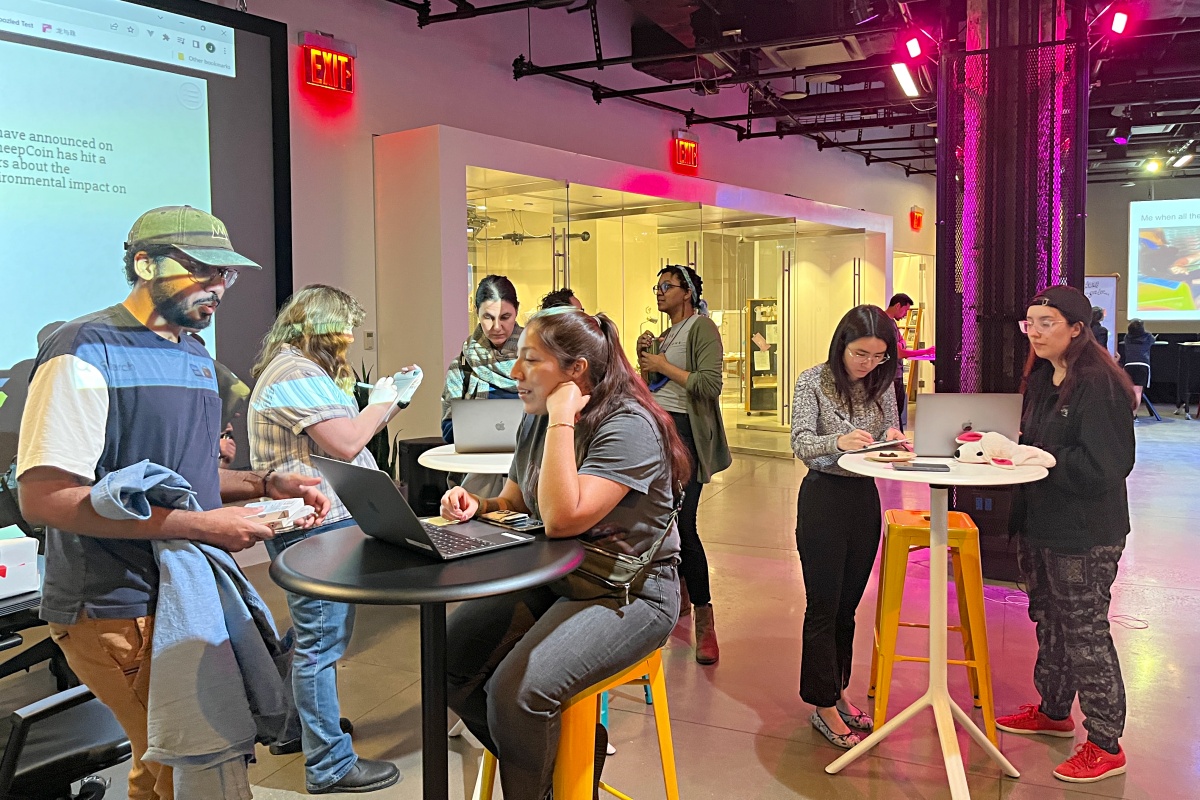
A provocative interrogation of misinformation, the media literacy game LAMBOOZLED made a triumphant return. The award-winning game — created by MASCLab students and faculty, under the guidance of the Lab’s Associate Director Ioana Literat and CMLTD faculty member Yoo Kyung Chang, following the explosion of online political misinformation in 2016 — is designed to “help young people sharpen their critical media literacy skills while avoiding partisan politics.” First published by TC Press in 2020 as a card game, LAMBOOZLED was now redesigned as a digital game, with a focus on interaction and narrative. At Mediafest, players were able to see previous feedback incorporated into game play and have the opportunity to participate in co-design.
“We received insightful input from people who do not consider themselves gamers or readily think of games as a learning experience,” says doctoral student Abu Abdelbagi. “Lamboozled is a great example of what Mediafest celebrates every year, both the process and product of media making. Every year, we showcase why and how the process itself is equally important to the final product as attendees get to interact with an authentic work-in-progress that invites everyone to take part.”
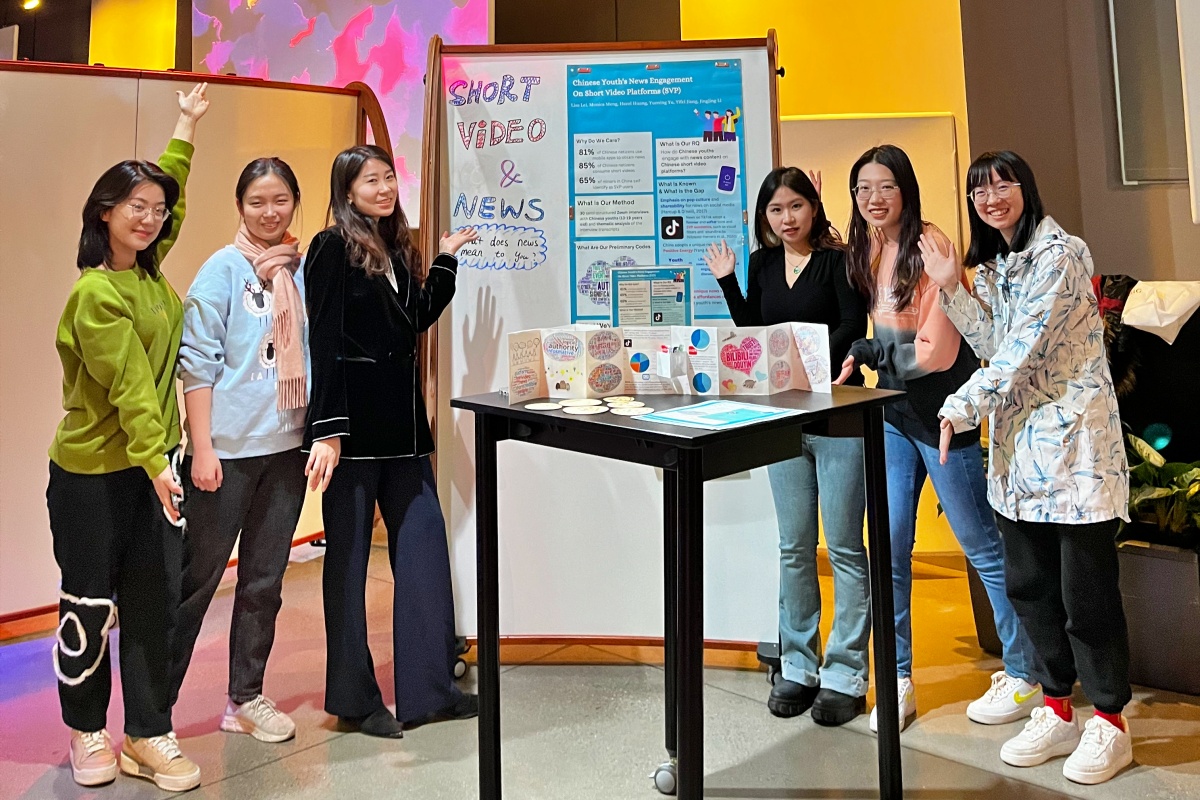
How do young people in China engage with news shared on apps like TikTok or Douyin? Communications, Media, Learning Technology and Design (CMLTD) students Lisa Lei, Monica Meng, Hazel Huang, Yuening Yu, Yifei Jiang and Jingjing Li are exploring just that through their research project. So far, the group has identified findings related to how short-form video formats parlay into the medium’s efficacy, and around user behavior related to cyberbullying, misinformation and more.
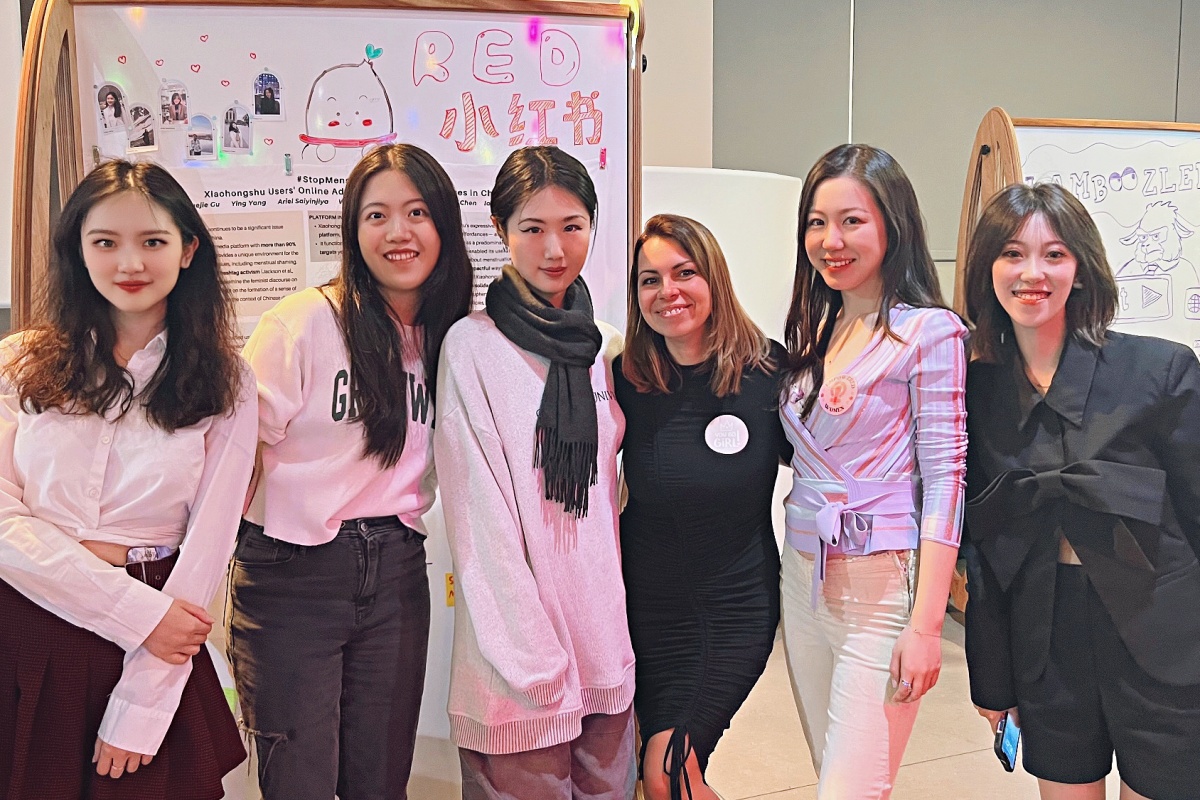
How is the Chinese social media platform Xiaohongshu helping destigmatize menstruation? CMLTD students Yuejie Gu, Ying Yang, Ariel Saiyinjiya, Wanyu Wu, Qingyun Chen and Siqi Chen analyzed how the platform’s female user-base is sharing “micro and macro truths about menstruation in intimate, creative and impactful ways.” Their investigation — aided by Literat — highlights a significant development within the broader context of menstrual shaming throughout China, and the broader adoption of “hashtag activism” across the globe.
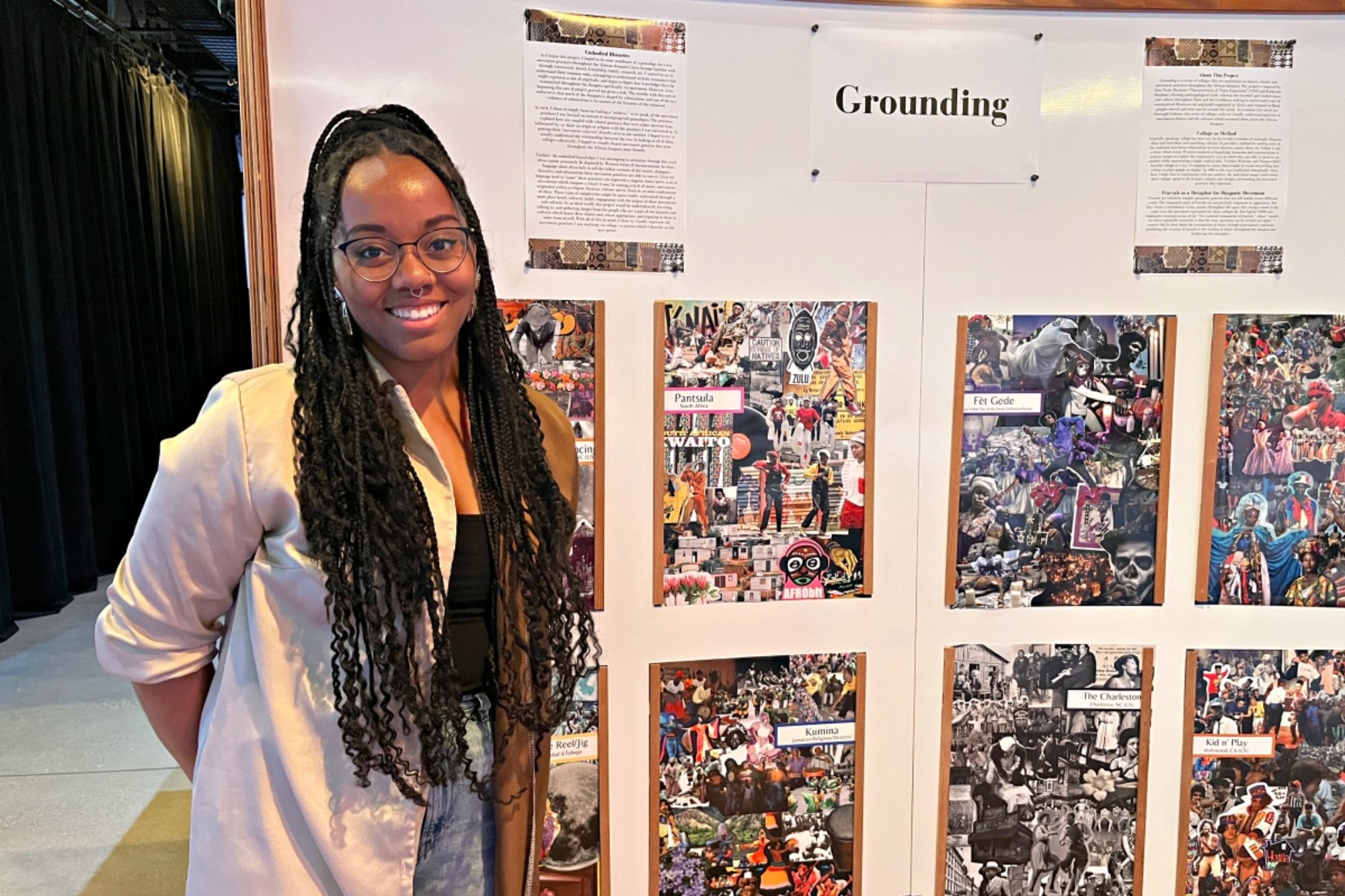
Meet MASCLab alum Azsaneé Truss (M.A. ’20, Instructional Technology & Media), who displayed her work on movement patterns throughout the African diaspora (pictured above) and her latest project, a podcast for the the Collective for the Advancement of Multimodal Research Arts at the University of Pennsylvania, where Truss is currently pursuing her Ph.D. in Communication .
The Multimodal Scholarship Writing Group, guided by MASCLab Postdoctoral Fellow OreOluwa Badaki, facilitated conversations on multimodal scholarships. At one of their activities, Moira McCavana (M.A. student, Instructional Technology and Media) asked guests to identify places where learning happens on a screen-printed map of Morningside Heights as part of discourse around creative ways to help students learn. Popular hot-spots for learning (outside of schools) included H-Mart, the Cathedral of St. John the Divine, and more.
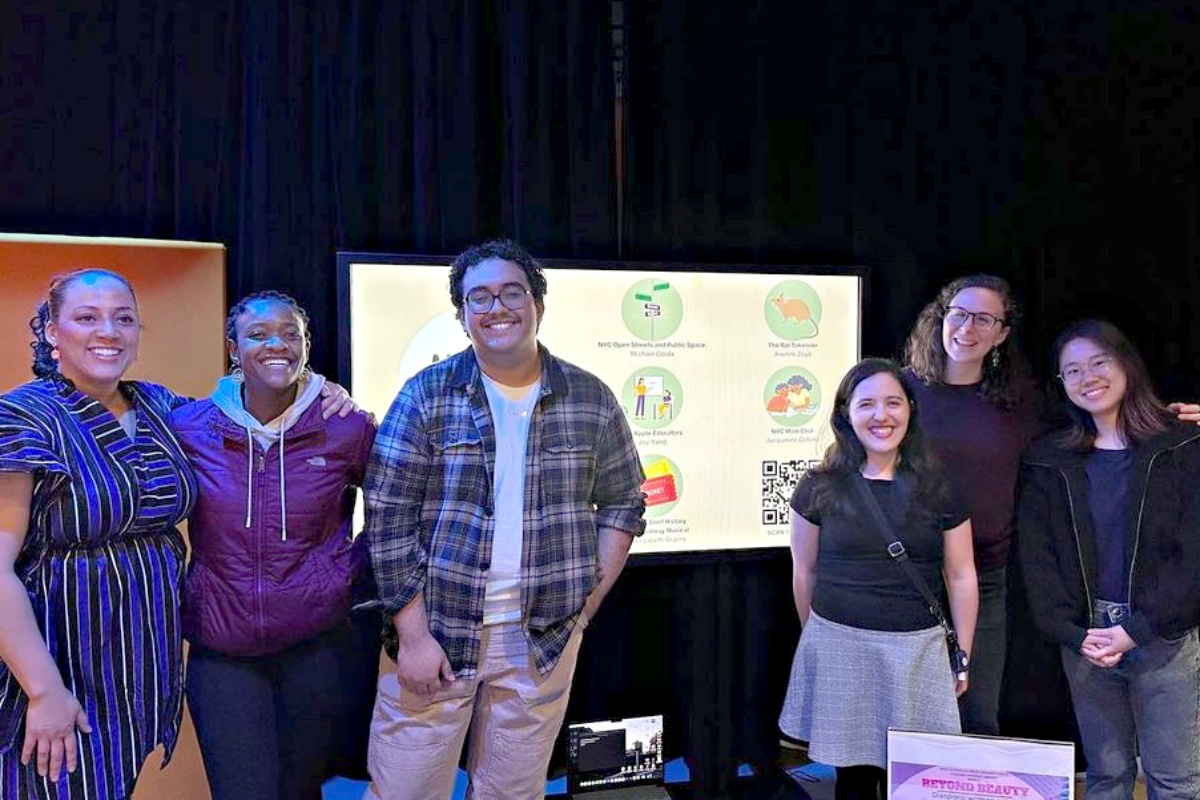
Did you miss Season 5 of the MASCLab Podcast? This season’s producers and creators showcased their work — which focuses on local issues such as TC graduate students’ experiences of parenting, the NYC Open Streets initiative, the city’s infamous rats, and more — while guests had the chance to connect with the minds behind the mic: Jacqueline Cofield, Michael Cerda, Shoshana Gottesman, Kate Elizabeth Orgera, Joy Yang and Avukile Zoya.
Nearby, Badaki showcased her short film and painting, inspired by fieldwork in urban gardens in Philadelphia around creative literacy practices and food justice. “This was an example of how you can take research you’re learning about and use African diaspora techniques to turn it into something creative,” explains Badaki.
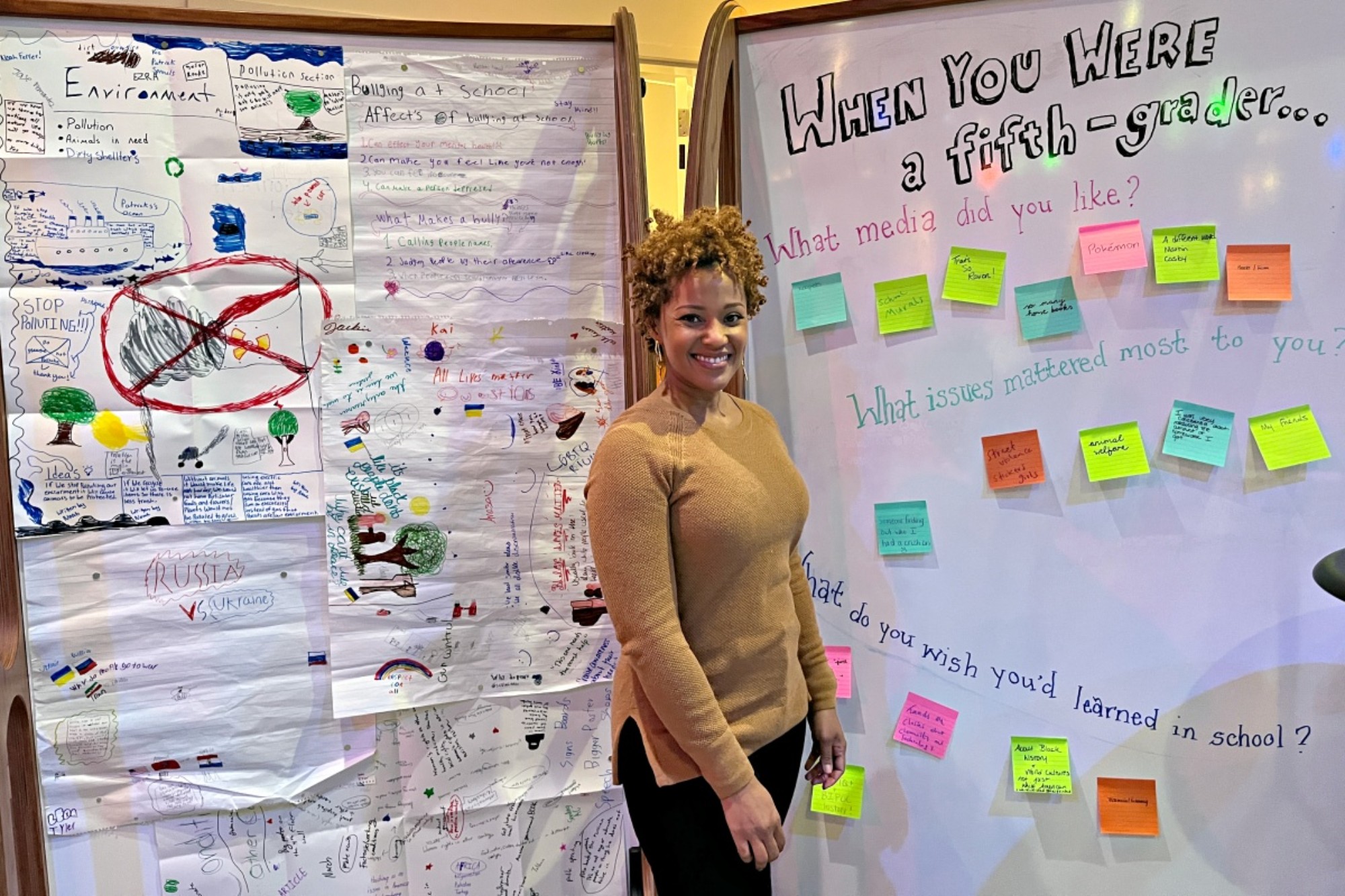
A Mediafest guest visits the station created by Zankel Fellows.
Meanwhile, Zankel Fellows Shell Avenant, Michael Cerda, Lunx Girgado, Catherine Huff and Jessica Lipaz showcased their work with public school fifth-grade students to explore media literacy and creative multimodal projects under the guidance of Professor Vasudevan.
[Learn more about the Media and Social Change Lab, and the College’s Digital Futures Institute.]
